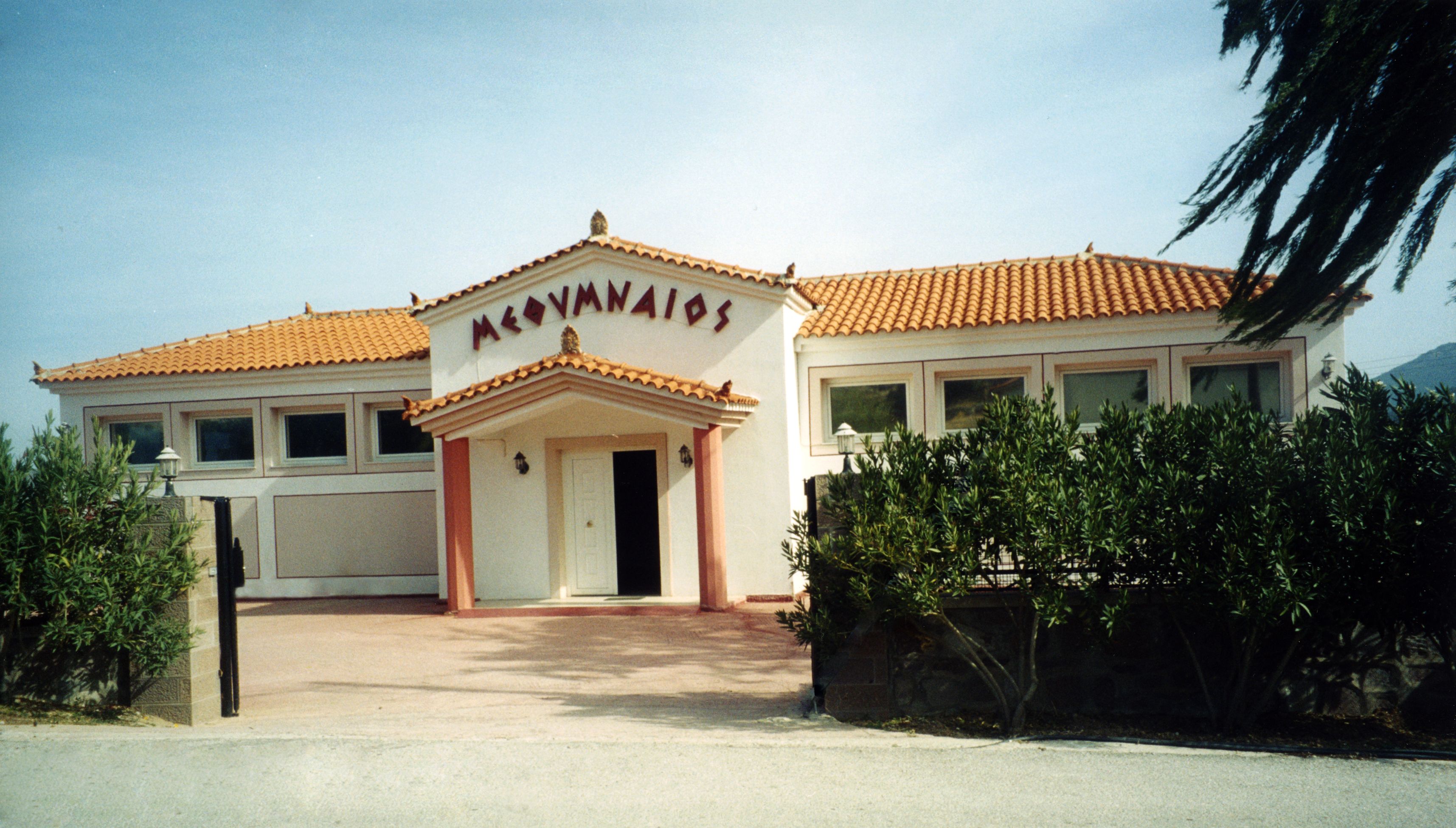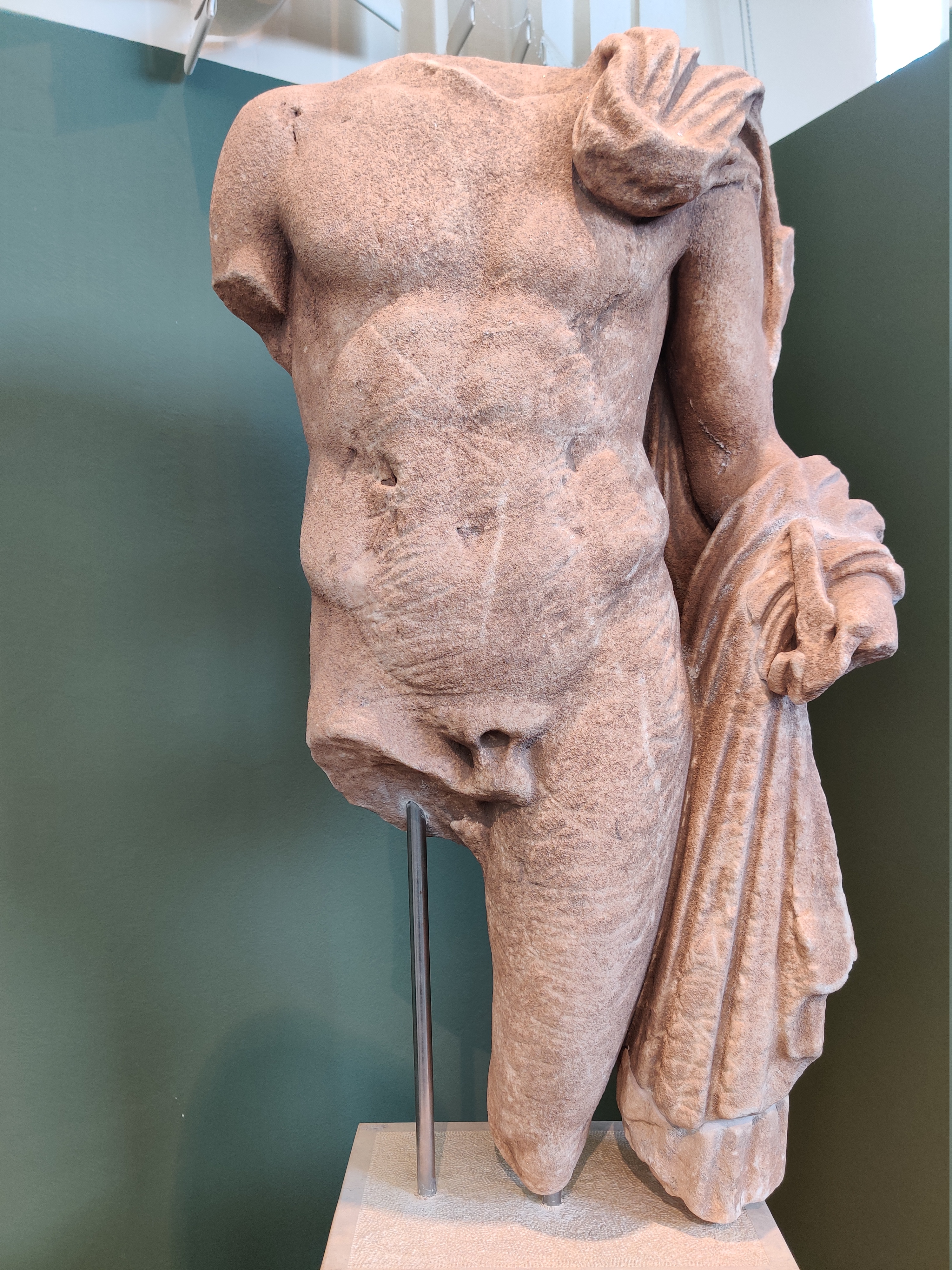|
Hecamede
In the ''Iliad'', Hecamede (Ancient Greek: Ἑκαμήδη), daughter of Arsinoos, was captured from the isle of Tenedos and given as captive to King Nestor. Described as "skilled as a goddess", "fair" and "proud", Hecamede was not a concubine but a serving woman. In her most prolonged mention, she serves Pramnian wine, a medicinal drink, to Nestor and Machaon.Homer, ''Iliad'', 11. 624 - 635; see also 14. 6 Notes References * Homer Homer (; grc, Ὅμηρος , ''Hómēros'') (born ) was a Greek poet who is credited as the author of the ''Iliad'' and the ''Odyssey'', two epic poems that are foundational works of ancient Greek literature. Homer is considered one of the ..., ''The Iliad'' with an English Translation by A.T. Murray, Ph.D. in two volumes. Cambridge, MA., Harvard University Press; London, William Heinemann, Ltd. 1924. Online version at the Perseus Digital Library.* Homer, ''Homeri Opera'' in five volumes. Oxford, Oxford University Press. 1920. Greek ... [...More Info...] [...Related Items...] OR: [Wikipedia] [Google] [Baidu] |
Arsinoos
In Greek mythology, the name Arsinoos or Arsinous ( grc, Ἀρσίνοος) may refer to two minor figures associated with the Trojan War: *Arsinoos of Mysia, father of Ennomus and Chromis. *Arsinoos of Tenedos, the "great-hearted" father of Hecamede whom the Achaeans chose for Nestor since he excelled all in counsel.Homer, ''Iliad'' 11.624–627 Notes References *Apollodorus, ''The Library'' with an English Translation by Sir James George Frazer, F.B.A., F.R.S. in 2 Volumes, Cambridge, MA, Harvard University Press; London, William Heinemann Ltd. 1921. ISBN 0-674-99135-4Online version at the Perseus Digital Library. *Homeric variations on a lament by Briseis Page 51 by Casey Dué * |
Ancient Tenedos
Tenedos (, ''Tenedhos'', ), or Bozcaada in Turkish, is an island of Turkey in the northeastern part of the Aegean Sea. Administratively, the island constitutes the Bozcaada district of Çanakkale Province. With an area of it is the third largest Turkish island after Imbros (Gökçeada) and Marmara. In 2018, the district had a population of 3023. The main industries are tourism, wine production and fishing. The island has been famous for its grapes, wines and red poppies for centuries. It is a former bishopric and presently a Latin Catholic titular see. Tenedos is mentioned in both the ''Iliad'' and the ''Aeneid'', in the latter as the site where the Greeks hid their fleet near the end of the Trojan War in order to trick the Trojans into believing the war was over and into taking the Trojan Horse within their city walls. The island was important throughout classical antiquity despite its small size due to its strategic location at the entrance of the Dardanelles. In the fol ... [...More Info...] [...Related Items...] OR: [Wikipedia] [Google] [Baidu] |
Nestor (mythology)
In Greek mythology Nestor of Gerenia ( grc, Νέστωρ Γερήνιος, ''Nestōr Gerēnios'') was a legendary king of Pylos. He is a prominent secondary character in Homer's ''Iliad'' and ''Odyssey'', where he appears as an elderly warrior who frequently offers long-winded advice to the other characters. The Mycenaean-era palace at Pylos is known as the ''Palace of Nestor'', though there is no evidence that he was an actual person. Description In the account of Dares the Phrygian, Nestor was illustrated as ". . . large, broad and fair. His nose was long and hooked. He was a wise adviser." Family Nestor was the son of King Neleus of Pylos and Chloris, daughter of King AmphionApollodorus, '' Bibliotheca'' 1.9.9; Scholia on Homer, ''Odyssey'' 11.281 citing Pherecydes of Orchomenus. Otherwise, Nestor's mother was called Polymede. His wife was either Eurydice or Anaxibia; their children included Peisistratus, Thrasymedes, Pisidice, Polycaste, Perseus, Stratichus, ... [...More Info...] [...Related Items...] OR: [Wikipedia] [Google] [Baidu] |
Briseis Phoinix Louvre G152
Briseis (; grc, Βρῑσηΐς ''Brīsēís'', ) ("daughter of Briseus"), also known as Hippodameia (, ), is a significant character in the ''Iliad''. Her role as a status symbol is at the heart of the dispute between Achilles and Agamemnon that initiates the plot of Homer's epic. She was married to Mynes, a son of the King of Lyrnessus, until Achilles sacked her city and enslaved her shortly before the events of the poem. Being forced to give Briseis to Agamemnon, Achilles refused to reenter the battle. Description Briseis receives the same minimal physical description as most other minor characters in the ''Iliad''. She is described with the standard metrical epithets that the poet uses to describe a great beauty, though her appearance is left entirely up to the audience's imagination. Her beauty is compared to that of the goddesses. Briseis was imagined about two millennia later by the Byzantine poet John Tzetzes as: Meanwhile, in the account of Dares the Phrygian ( ... [...More Info...] [...Related Items...] OR: [Wikipedia] [Google] [Baidu] |
Iliad
The ''Iliad'' (; grc, Ἰλιάς, Iliás, ; "a poem about Ilium") is one of two major ancient Greek epic poems attributed to Homer. It is one of the oldest extant works of literature still widely read by modern audiences. As with the ''Odyssey'', the poem is divided into 24 books and contains 15,693 lines in its most widely accepted version, and was written in dactylic hexameter. Set towards the end of the Trojan War, a ten-year siege of the city of Troy by a coalition of Mycenaean Greek states, the poem depicts significant events in the siege's final weeks. In particular, it depicts a fierce quarrel between King Agamemnon and a celebrated warrior, Achilles. It is a central part of the Epic Cycle. The ''Iliad'' is often regarded as the first substantial piece of European literature. The ''Iliad'', and the ''Odyssey'', were likely written down in Homeric Greek, a literary amalgam of Ionic Greek and other dialects, probably around the late 8th or early 7th century BC. Homer's ... [...More Info...] [...Related Items...] OR: [Wikipedia] [Google] [Baidu] |
Ancient Greek
Ancient Greek includes the forms of the Greek language used in ancient Greece and the ancient world from around 1500 BC to 300 BC. It is often roughly divided into the following periods: Mycenaean Greek (), Dark Ages (), the Archaic period (), and the Classical period (). Ancient Greek was the language of Homer and of fifth-century Athenian historians, playwrights, and philosophers. It has contributed many words to English vocabulary and has been a standard subject of study in educational institutions of the Western world since the Renaissance. This article primarily contains information about the Epic and Classical periods of the language. From the Hellenistic period (), Ancient Greek was followed by Koine Greek, which is regarded as a separate historical stage, although its earliest form closely resembles Attic Greek and its latest form approaches Medieval Greek. There were several regional dialects of Ancient Greek, of which Attic Greek developed into Koine. Dia ... [...More Info...] [...Related Items...] OR: [Wikipedia] [Google] [Baidu] |
Pramnian
Lesbos wine is wine made on the Greek island of Lesbos in the Aegean Sea. The island has a long history of winemaking dating back to at least the 7th century BC when it was mentioned in the works of Homer. During this time the area competed with the wines of Chios for the Greek market. An apocryphal account details one of the brothers of the poet Sappho as a merchant trading Lesbos wine with the Greek colony of Naucratis in Egypt. The most noted Lesbos wine was known as ''Pramnian'' which draws similarities today to the Hungarian wine Eszencia.H. Johnson. ''Vintage: The Story of Wine''. Simon and Schuster, 1989, , p. 44. The popularity of Lesbos wine continued into Roman times where it was highly valued along with other Aegean wines of Chios, Thasos and Kos.J. Robinson (ed) ''The Oxford Companion to Wine'' (Third Edition). Oxford University Press, 2006, , p. 5. Viticulture and wine The warm Mediterranean climate of Lesbos provides a suitable climate for viticulture to flour ... [...More Info...] [...Related Items...] OR: [Wikipedia] [Google] [Baidu] |
Machaon (physician)
In Greek mythology, Machaon (; grc, Μαχάων, Macháōn) was a son of Asclepius; and the older brother of Podalirius. He and his brother led an army from Tricca in the Trojan War on the side of the Greeks. Description Meanwhile, in the account of Dares the Phrygian, Machaon was illustrated as ". . . large and brave, dependable, prudent, patient, and merciful." Family Machaon fathered Nicomachus and Gorgasus by Anticleia, daughter of Diocles of Pharae. His other sons were Alexanor, Sphyrus and Polemocrates. According to Diogenes Laertius's '' Lives and Opinions of Eminent Philosophers'', Hermippus, in his book ''On Aristotle,'' places Machaon as the son of Asclepius, father of Nicomachus, and ancestor of Aristotle. Mythology Both Machaon and Podalirius were highly valued surgeons and medics. In the ''Iliad'' he was wounded and put out of action by Paris. Machaon (or his brother) healed Philoctetes, Telephus and Menelaus, after he sustained an arrow at the hand ... [...More Info...] [...Related Items...] OR: [Wikipedia] [Google] [Baidu] |
Homer
Homer (; grc, Ὅμηρος , ''Hómēros'') (born ) was a Greek poet who is credited as the author of the ''Iliad'' and the ''Odyssey'', two epic poems that are foundational works of ancient Greek literature. Homer is considered one of the most revered and influential authors in history. Homer's ''Iliad'' centers on a quarrel between King Agamemnon and the warrior Achilles during the last year of the Trojan War. The ''Odyssey'' chronicles the ten-year journey of Odysseus, king of Ithaca, back to his home after the fall of Troy. The poems are in Homeric Greek, also known as Epic Greek, a literary language which shows a mixture of features of the Ionic and Aeolic dialects from different centuries; the predominant influence is Eastern Ionic. Most researchers believe that the poems were originally transmitted orally. Homer's epic poems shaped aspects of ancient Greek culture and education, fostering ideals of heroism, glory, and honor. To Plato, Homer was simply the one who ... [...More Info...] [...Related Items...] OR: [Wikipedia] [Google] [Baidu] |
Women Of The Trojan War
A woman is an adult female human. Prior to adulthood, a female human is referred to as a girl (a female child or adolescent). The plural ''women'' is sometimes used in certain phrases such as "women's rights" to denote female humans regardless of age. Typically, women inherit a pair of X chromosomes, one from each parent, and are capable of pregnancy and giving birth from puberty until menopause. More generally, sex differentiation of the female fetus is governed by the lack of a present, or functioning, SRY-gene on either one of the respective sex chromosomes. Female anatomy is distinguished from male anatomy by the female reproductive system, which includes the ovaries, fallopian tubes, uterus, vagina, and vulva. A fully developed woman generally has a wider pelvis, broader hips, and larger breasts than an adult man. Women have significantly less facial and other body hair, have a higher body fat composition, and are on average shorter and less muscular than men. Th ... [...More Info...] [...Related Items...] OR: [Wikipedia] [Google] [Baidu] |

_(cropped).jpg)

.jpg)


_-_Homer_and_his_Guide_(1874).jpg)
.jpg)